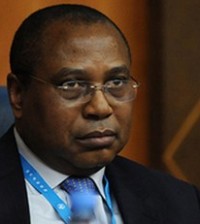Expect Power Supply to Get Even Better – Presidency
President Goodluck Jonathan has stated that the improvement in the quantum of power supply would not only be sustained but also improved.
The President made the statement to reassure Nigerians and international investors after the ouster of Professor Barth Nnaji as the minister of Power.
According to a statement from the Senior Special Assistant to the President on Public Affairs the progress would be even more visible by the end of year 2012.
The statement read, ” “President Goodluck Jonathan expects that before the end of December 2012, with the progress being made in the area of gas supply to the National Integrated Power Project, NIPP, the present improvement in the electricity supply for domestic and industrial use will not only be sustained but also significantly improved.
“The President has set a target for the
actualisation of uninterrupted power supply, which drives economic development and Nigerians are assured that the process will not be truncated, while the privatisation of the sector will go on with utmost transparency.
“Majority of the NIPP projects that are yet to operate in full capacity despite daunting challenges will, between now and December, be able to substantially and significantly improve the generation capacity to increase the availability and sustainability of electricity power supplied nationwide for long hours.
“It is the expectation of the President that the increase in power supply will attract foreign investors and open up the flanks for job creation.
“The Roadmap to Power Sector Reform has greatly improved project planning and
management efficiency in Nigeria’s electric power system in preparation for private sector management. The President is turning words into action as evident in the
improvement in electricity power supply nationwide.
“President Jonathan is sincerely committed to ensuring that the government divests its interest in state-owned entities and
transparently entrench the key principles of restructuring and divestiture in the electric power sector.”








